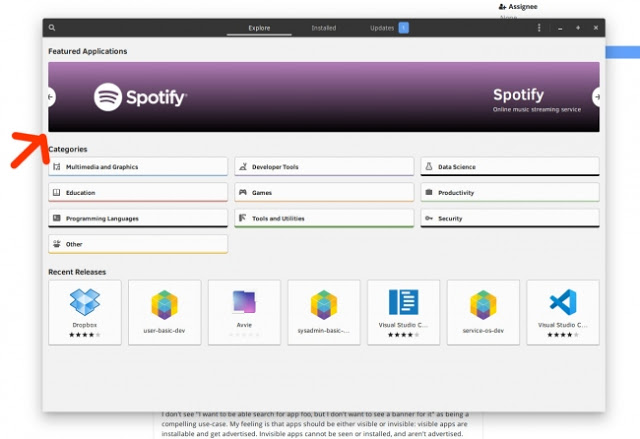Fedora users request that proprietary software be prevented from appearing on GNOME Software banners.
The Fedora Workstation development team has received reports that GNOME Software is making recommendations for proprietary banner software, when according to the author of the issue report, it should only make such suggestions when it comes to free software.

When it comes to software licenses, I believe that in the Linux world there are three types of users. There are those who stand for free software, those who stand for proprietary software, and finally those who don't care or know exactly what a software license is.
If you are one of those people who are not sure what these licenses are, it is very important to read This article on the subject, so that they can take better advantage of the content reported here.
The video below is also a good choice, so you can better understand the differences between free and open source software.
Now that everyone is well contextualized about software and its licenses, let's get to the facts.
A few days ago a issue report suggesting to Fedora Workstation developers to make changes to the way GNOME Software displays and works with the proprietary license software in the store. Check out below (in free translation) the excerpt from the issue report in which the modifications are suggested: In my opinion, we need some kind of filter. Even in cases where the user has activated the Flathub, or any other third party repositories that contain proprietary software, does not mean that this user has intended to enable recommendations (either via banner or through search) for proprietary software. I think all proprietary license software should be displayed in a part category in the GNOME Software interface. Not to make it difficult for users to use proprietary software, but to make it clear that they intentionally chose to use it.  As noted in the content of the issue report above, it is important to make it clear that no proprietary software is included in the default enabled repositories in Fedora Workstation. To gain access to proprietary applications through GNOME Software in this district requires the user to manually activate repositories containing this type of software. That said, if no repositories containing proprietary software have been activated by the user, none of these will be displayed in the app store banners.
As noted in the content of the issue report above, it is important to make it clear that no proprietary software is included in the default enabled repositories in Fedora Workstation. To gain access to proprietary applications through GNOME Software in this district requires the user to manually activate repositories containing this type of software. That said, if no repositories containing proprietary software have been activated by the user, none of these will be displayed in the app store banners.
It was also suggested that Fedora develop its own filter that would select which software may or may not appear on GNOME Software banners, thus preventing proprietary software from being promoted, even if there are third party repositories enabled on the system.
This problem, in quotation marks, is not considered as such by many users, nor a malfunction, is not restricted to Fedora alone. Proprietary software may be displayed on banners within GNOME Software in any other distribution that has repositories enabled that contain such software.
I, Jedielson, have nothing against proprietary software, including the use of various, but I agree with the idea of preventing such software from being displayed as banners within application stores. Proprietary software, for the most part, belongs to large companies, which are perfectly capable of making good disclosure of them. On the other hand, there are many excellent quality free software developed by ordinary people who make no money through the software, or services linked to it, and need much more the visibility that such banners provide. Remembering that this is my personal opinion, and not of Diolinux as a whole.
Now I want to know your opinion on the subject. In your view, should these banners be reserved for free software only, or rather as it goes, and any software can be displayed on it? Tell us your opinion in the comments!
Do you like Linux and technology? Got a question or problem you can't solve? Come join our community in the Diolinux Plus!
See an error or would you like to add any suggestions to this article? Collaborate, click here.
